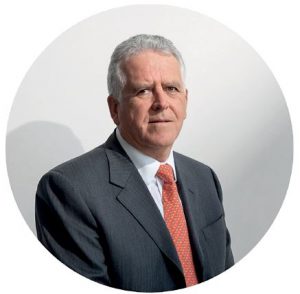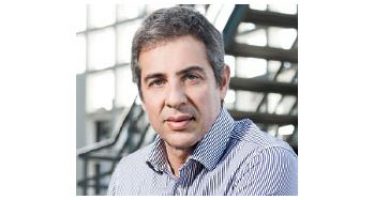Dr Manny Pohl: A Survivor With a Cool Head and a Knack for Long-Term Investment

MD: Dr Manny Pohl
As a survivor of the 1987 stock market crash and the 2008 Global Financial Crisis, Manny Pohl has learned the importance of courage and staying true to core values.
When times get tough, the line between facts and feelings becomes blurred; personal conviction based on a core philosophy can help in these turbulent and traumatic moments. “I have found that when the dust settles, and we look back on these events,” Pohl says, “there is quite a thrilling tale — but only for those who stood by their convictions.”
At the core of his own values is the belief that the underlying economics of a business drives its long-term returns. In a nutshell, companies that are profitably growing their economic footprint generally represent better investment opportunities than those that aren’t.
His preference is to invest in fewer companies which are well understood, rather than to take a chance on a large number of companies of which there is only a cursory understanding. As custodians of other people’s money, fund managers owe it to their clients — who have invested alongside them — to find opportunities in the best interests of all stakeholders. “It is better to sleep well than to eat well,” he says.
Athelney shareholders can be assured that returns will not be generated by speculation, and are made for the long-term, not for trading. Portfolios should be concentrated, as excessive diversification can be an excuse for poor due diligence.
The small-cap space continues to be a prodigious hunting ground for investors seeking attractive long-term returns. Athelney recognises this, with a stated intent of providing shareholders with prospects of long-term capital growth in quality small-cap companies, while maintaining a progressive dividend record. This is no easy task and Manny Pohl has been leading the charge with his team at ECP Asset Management to Redefine Active Investing.
While the active-versus-passive debate continues, and the focus of the industry has been on the fees paid rather than on the returns generated, the key issue to be addressed is manager skill. Picking quality investments trumps a broad portfolio and replicating an index. The acid test is longer-term investment performance — and the only way to sustainable growth is careful, considered and committed investment.
Active investing requires forensic research. Many factors need to line-up before a decision is made to invest in a business. A sound business strategy that is contextually relevant to the markets is vital, as is a durable business model with a Sustainable Competitive Advantage (SCA). Also important is management with demonstrated competence.
Potential, not just performance, must be evaluated. It’s important to understand the “narrative” of an investment and the numbers that support it. Investing on the narrative alone ignores reality, and investing in numbers alone ignores potential. The combination of these factors is needed to best capture long-term potential while ensuring a fair price.
To make long-term investment decisions with conviction requires deep understanding and a lot of unhurried attention. This means thinking as an owner, and not as a share trader. Time should be devoted to only the best ideas, which then need to be monitored and assessed through collaborative and discursive practices.
Investment management is more than just generating performance in excess of a benchmark. That is the core part of a mandate, but other qualitative issues are central to what should be done. One should recognise, for example, that capital allocation is a vehicle through which to drive change. “I have had the opportunity to demand specific standards of corporate governance,” Pohl says, “decide whether specific social and ethical issues are acceptable and, if they are not, to vote with my feet.
“For me, the integrity and credibility of any management team is a founding principle to our investment process. I need to trust that management has the best interests for all stakeholders at heart, and I need to have faith that they will make sound strategic decisions, and have strong experience and capabilities.
“As custodians of shareholders’ capital, we have an obligation to ensure that we are doing whatever we can to preserve that capital and grow it over time… Finding trustworthy, values-based management that align with my core values and beliefs will ensure above-average economic portfolio returns.”
As a champion for active investment, Dr Manny Pohl believes that it is important for him and others to outline some of the things that are crucial to good active investing.
Athelney Trust is a closed-ended equity mutual fund listed on the London Stock Exchange with investments in small and mid-sized companies across diversified sectors in the public equity markets of Britain. Dr Manny Pohl, as the Athelney Trust managing director, is responsible for managing the Athelney Trust investment portfolio. He is also Chairman of ECP Asset Management, the investment firm that has ranked among the top four fund managers in Australia over the past decade — often securing top place.
You may have an interest in also reading…
CFI.co Meets the CEO of Assupol Life: Bridget Mokwena-Halala
In South Africa’s busy life insurance market, that sees at least 52 providers vie for business, Assupol stands out not
CFI.co Meets the CEO of Minerva Foods: Fernando Galletti de Queiroz
Chief executive officer of Minerva Foods since 2007, Fernando Galletti de Queiroz joined the business in 1992 serving as its
Social Activist-Turned-Chief Executive: Leader Showing True Commitment to Worthy Causes — and to Brazil’s People
CAIXA’s Maria Rita Serrano understands challenge and inequality, and strives to overcome both. Brazil is currently facing major political and


















































































